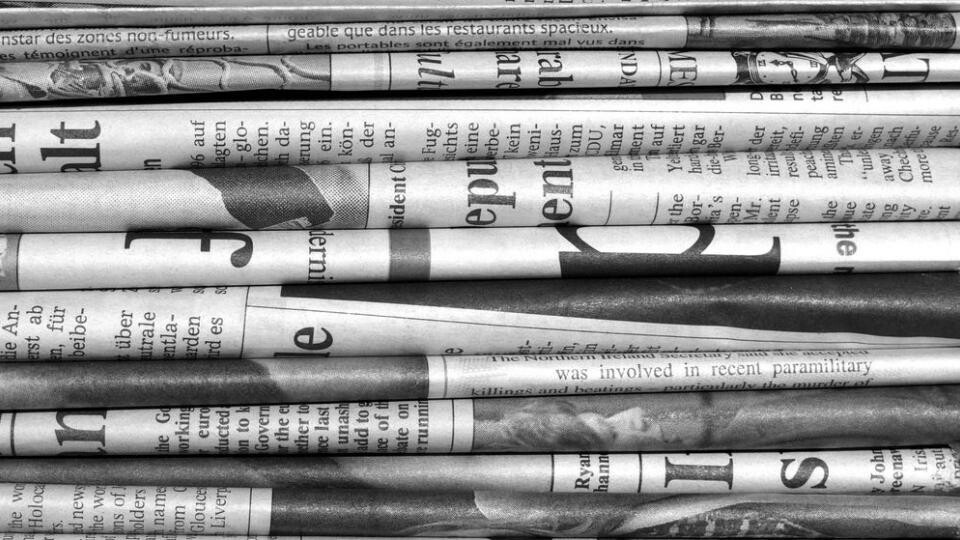
Drones, drought and digital literature studies were among the topics that generated more than 50 national news stories for University of Nebraska-Lincoln personnel during August 2016.
Unmanned aerial vehicles – aka drones – kept Matthew Waite, journalism, busy fielding interviews in August. Waite was quoted by National Public Radio Aug. 29, Forbes on Aug. 28 and St. Louis Public Radio on Aug. 31 about new federal rules that will allow commercial use of drones, including for journalism.
Waite wasn’t the only university drone expert to make the news. New research on using specially designed drones to start and manage conservation fires generated coverage for Sebastian Elbaum and Carrick Detweiler, computer science and engineering; Dirac Twidwell, agronomy and horticulture; and Craig Allen, Nebraska Cooperative Fish and Wildlife Research. Stories about their work appeared on Popular Science Aug. 2, Weather.com on Aug. 5 and NPR’s Morning Edition on Aug. 3.
Drought in Arkansas, Georgia and New England generated many stories based upon the work of the National Drought Mitigation Center. Climatologist Mark Svoboda was interviewed by New England Public Radio for an Aug. 29 story about how drought was impacting farmers in New England. That story was carried by the Here & Now program produced by Boston’s WBUR station and appeared on a number of NPR stations across the country, as well as NPR’s farm-to-plate food blog, The Salt.
Matthew Jockers, English, and his upcoming book, “The Bestseller Code,” were featured in the Wall Street Journal’s fall books preview on Aug. 31. Jockers co-authored the book with his former student, Jodie Archer, a former acquisitions editor for Penguin UK. The book, to be released Sept. 20 by St. Martin’s Press, details their research using computers to identify common patterns among novels that make the New York Times bestseller list.
Other notable coverage in August:
In an Aug. 5 Science report, Kenneth Bloom, physics, said additional experimentation at the Large Hadron Collider at CERN in Switzerland ruled out what had been thought to have been the discovery of a new particle eight months ago.
Kelsy Burke, sociology, was featured in an Aug. 25 Christian Post article that highlighted her recent book “Christians Under Covers,” an ethnographic study of Christian sex advice websites.
Aaron Duncan, communication studies, authored an op-ed about the TV viewing habits of Donald Trump supporters that appeared in the New Republic Aug. 4. The piece originated on The Conversation and also appeared on Business Insider and U.S. News & World Report, among other outlets. Duncan also appeared on Midpoint, a news program on WMNF radio in Tampa, Florida, to discuss his conclusions.
Frans von der Dunk, space law, was among experts quoted Aug. 3 by U.S. News & World Report about the first private lunar space mission to be approved by the U.S. Its payload will include inert DNA samples, as well as cremains of people who want their ashes scattered in space.
The Associated Press quoted Tony Falcone, bands, in an Aug. 27 report on the Cornhusker Marching Band using iPad Mini 4 tablets to keep track of music, drills, formations and movements. The story appeared in Penn State’s Centre Daily Times, along with other outlets across the country.
Michael Hayes, National Drought Mitigation Center, and Christopher Neale, Robert B. Daugherty Water for Food Global Institute, were quoted in an Aug. 28 BTN LiveBIG report on a $4 million joint research effort to balance water consumption and increase agricultural productivity in the Middle East and Africa.
A study that found Nebraska’s “livestock friendly” counties have comparatively more cattle and hog farms was covered by Feedstuffs Aug. 29. The study was authored by Brian Mills, Azzeddine Azzam, David Aikens, and Kate Brooks, agricultural economics.
Max Perry Mueller, classics and religion, traced the history of Mormonism in an Aug. 4 Slate article to explain why Mormon public officials have such distaste for Donald Trump’s rhetoric and his candidacy for president.
Agri-View reported Aug. 19 on a study by Rebecca Roston and Allison Barnes, biochemistry, that investigated how plants buffer against cellular breakdown in freezing temperatures.
James Takacs, chemistry, was quoted in an Aug. 31 News-Medical.net report on a $11.3 million grant from the National Institutes of Health to establish the Center for Integrated Bimolecular Communication. The new center will investigate cellular level miscommunications that contribute to complex diseases like cancer and diabetes.
William G. Thomas III, history, published an Aug. 19 op-ed in the Washington Post discussing what his research reveals about the Jesuit founders of Georgetown University and their role in perpetuating slavery. Thomas has spent a number of years researching slave petitions for freedom filed in the District of Columbia courts, including unsuccessful petitions filed by slaves owned by the Georgetown founders. Some experts say Georgetown likely would not still be in existence if it weren’t for the sale of slaves form Jesuit plantations in 1838.
An Aug. 19 Inside Science report on fishy times for Olympic swimmers in Rio included an interview with Timothy Wei, engineering. Wei theorized that some athletes’ times could have been affected by wave patterns created by swimmers racing inside the pool.
Cynthia Willis-Esqueda, psychology, and Stephane Shepherd, a postdoctoral Fulbright scholar from Australia, were featured in an Aug. 19 Indian Country Today Media Network article about their research investigating whether native youth are unfairly treated by risk assessment instruments commonly used by the criminal justice and mental health systems.
Minnesota Public Radio reported Aug. 29 on a study about bees by Judy Wu-Smart, entomology. Wu-Smart, who recently joined the Nebraska faculty, found that queen bees exposed to nicotine-based insecticides became less active and laid fewer eggs.
Faculty, administration, student and staff appearances in the national media are logged at http://newsroom.unl.edu/inthenews/. If you have additions to this list or suggestions for national news stories, contact Leslie Reed, the university’s national news editor, at lreed5@unl.edu or 402-472-2059.







